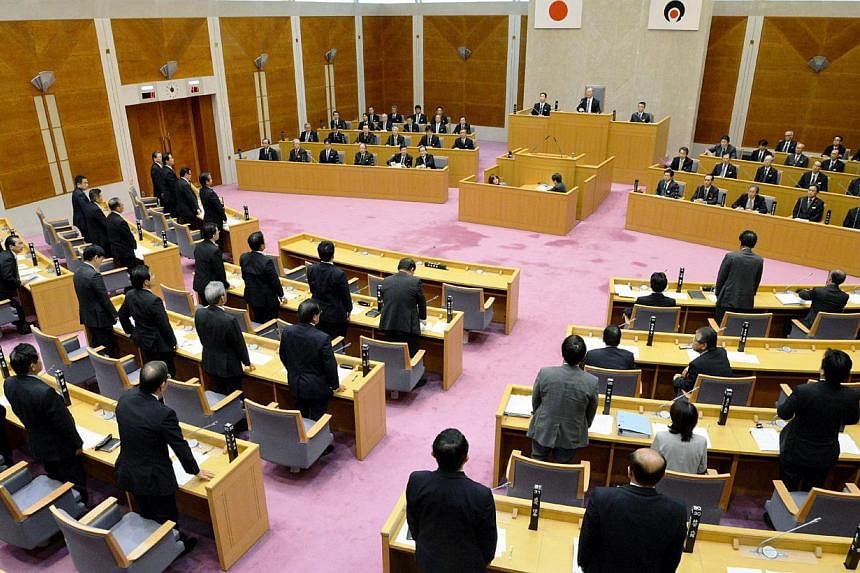TOKYO (AFP) - A local assembly in Japan on Friday approved plans to restart two nuclear reactors, removing a major hurdle to getting atomic power back online more than three years after the Fukushima disaster.
A majority of Kagoshima assembly members voted for the motion to resume operations at the Sendai plant in the southern Japanese prefecture, officials said.
A local governor then gave the green light to restarting the atomic power station, granting the pro-nuclear government a significant victory in its bid to get Japan's reactor network back online.
Two reactors at Sendai nuclear power plant were clear to resume activity after authorities considered "various situations comprehensively", Kagoshima Governor Yuichiro Ito told a news conference.
The governor's go-ahead removes the final hurdle in the government's mission to get nuclear power up and running again, more than three years after the disaster at Fukushima.
The restarts, which are unlikely to happen until next year, will herald the first nuclear power generation in Japan since September 2013, when the final working reactors were shut down amid public qualms over safety.
The assembly's approval came after the Nuclear Regulatory Authority (NRA) confirmed it believed the two units met toughened safety standards introduced after the Fukushima accident.
Television footage showed about a dozen protestors in the public gallery of the assembly hall chanting "We oppose the restart".
The actual restart, however, is likely to be delayed until next year as technical procedures are still under way, including more NRA approvals for remedial work at the site.
Following the tsunami-sparked catastrophe at Fukushima, Japan's entire stable of nuclear reactors were gradually switched off.
Two were briefly restarted in 2012 but their power-down last September heralded an entirely nuclear-free Japan.
While Prime Minister Shinzo Abe's government and much of industry is keen to get back to atomic generation - largely because of the soaring costs of dollar denominated fossil fuels to an economy with a plunging currency - the public is unconvinced.
Communities living right next door to nuclear plants, who often enjoy grants from utility companies and depend on the power stations for employment, are frequently sympathetic to restarts.
However, there is hostility from those living further afield who enjoy no direct benefits but see themselves as in the firing line in the event of another accident like Fukushima.
Permission from local representatives will be good news for pro-nuclear Abe, who has set his heart on persuading his wary electorate that the world's third-largest economy must return to an energy source that once supplied more than a quarter of its power.
Fukushima was the world's worst nuclear disaster since Chernobyl. It forced tens of thousands of people from their homes, with many of them still displaced amid warnings some areas might have to be abandoned forever.

